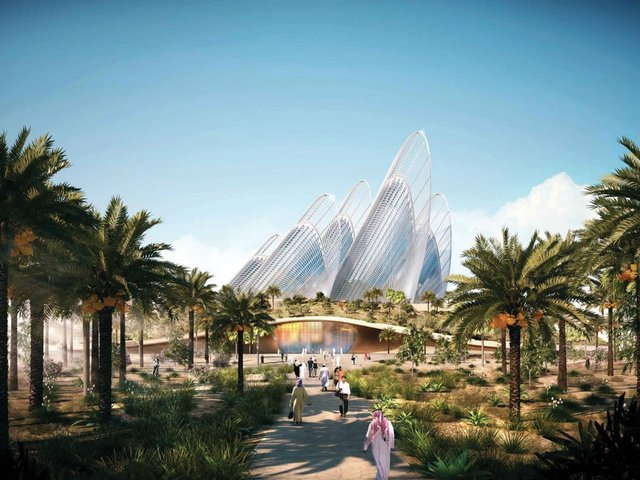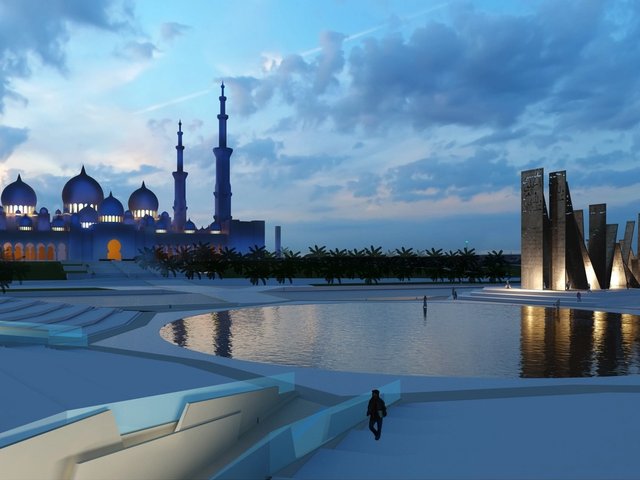Which artist won the world’s largest, most prestigious and probably most valuable commission this year, taking it from concept to finish in nine months? The answer is Idris Khan: 38, British, of Pakistani and Welsh parents. His commission is a vast memorial to the war dead of the United Arab Emirates (UAE), inaugurated by the Crown Prince of Abu Dhabi today (30 November).
Founded in 1971, the UAE lived essentially at peace for the first 44 years of its existence, but this age of innocence ended in March 2015 when it joined a coalition led by Saudi Arabia against the Shia Houthi in the Yemeni Civil War. On 4 September, 45 UAE soldiers were killed when a missile hit an ammunition store. This aroused deep emotion in a closely entwined tribal society and a few days later, the Crown Prince, who is also deputy supreme commander of the armed forces of the UAE, announced both the ritual of commemoration, with a Martyrs’ Day to fall every 30 November, and a memorial. A military history museum is also a possibility, inspired by a visit of the UAE minister of foreign affairs to the Gallipoli display in New Zealand’s Te Papa museum.
In March, Khan was announced as the winner of a competition that had three finalists. His design is for a great landmark, with seven 23m-high aluminium-encased steel tablets, cast with poems by the seven emirs of the UAE. They lean against each other as if in mutual support, with a reflecting pool in front of them.
All around is a park the size of the Piazza del Duomo in Milan (42,000 sq. m), with a pavilion, again made up of seven tablets, with the names of the fallen embedded in the walls, while in the centre there are seven glass plaques incised with the soldier’s oath of allegiance.
The Martyrs’ Memorial Park is in a place imbued with national symbolism, next to the grandest religious building in the UAE, the Sheikh Zayed Mosque, where the highly respected founder of the country is buried.



